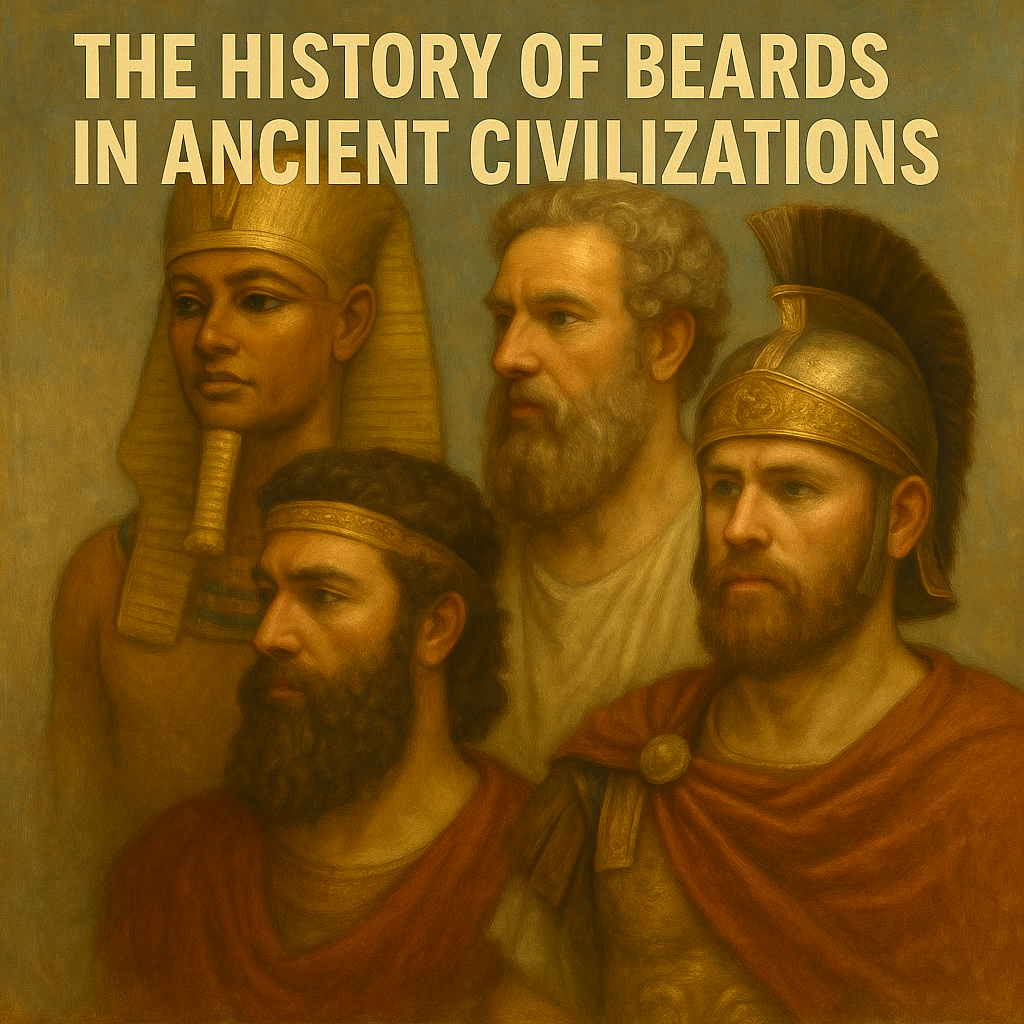
From ancient pharaohs to Greek philosophers, the beard has been a powerful symbol throughout human history. Across civilizations, it represented wisdom, strength, and even divine favor. Understanding the origins of beard culture helps us see how this timeless expression of masculinity evolved into what it is today.
Beards in Ancient Egypt
In ancient Egypt, beards weren’t just a sign of manhood — they carried royal and spiritual meaning. Pharaohs, both men and women, often wore false metal beards during ceremonies as symbols of divine power. The beard was a mark of godlike authority, connecting the ruler to Osiris, the god of the afterlife.
- Gold-plated ceremonial beards symbolized immortality.
- Shaved faces among citizens showed cleanliness and order, aligning with Egyptian values of purity.
Beards in Mesopotamia
The kings and nobles of Mesopotamia were known for their elaborately styled beards, often curled or braided to display status. These beards were treated with oils and perfumes, showing that grooming rituals date back thousands of years.
- Beards symbolized strength and virility.
- Sculptures of gods and rulers often featured meticulously detailed facial hair.
Beards in Ancient Greece
In ancient Greece, the beard was a badge of wisdom and maturity. Philosophers like Socrates and Plato wore full beards as symbols of intellect and self-discipline. However, during Alexander the Great’s reign, shaving became fashionable for soldiers to avoid giving enemies something to grab in battle.
- Beards represented philosophy, masculinity, and respect.
- Shaving symbolized modernity and discipline under Alexander’s influence.
Beards in Ancient Rome
Romans initially followed Greek traditions, where facial hair showed maturity and honor. But as Roman society evolved, clean-shaven faces became the new mark of sophistication. Shaving was introduced as a daily ritual of refinement, especially among the upper class.
- Early Roman leaders wore beards to show gravitas.
- Later emperors preferred a smooth face as a sign of civility and progress.
Beards in Ancient India and the Middle East
In ancient India, a beard symbolized spirituality, wisdom, and dignity. It was often associated with sages, warriors, and kings. In Persia and the broader Middle East, full beards were signs of honor and maturity — a tradition that continues to influence modern culture.
- Hindu texts praised beards as marks of manhood.
- Persian soldiers and leaders maintained thick, styled beards to express strength and pride.
What We Learn from Beard History
- The beard has been a universal symbol of power and respect for thousands of years.
- Ancient grooming traditions show how deeply men valued their appearance and social status.
- Whether ceremonial or practical, beards shaped the identity of great civilizations.
